21 Things the Missouri Department of Corrections Did in 2021
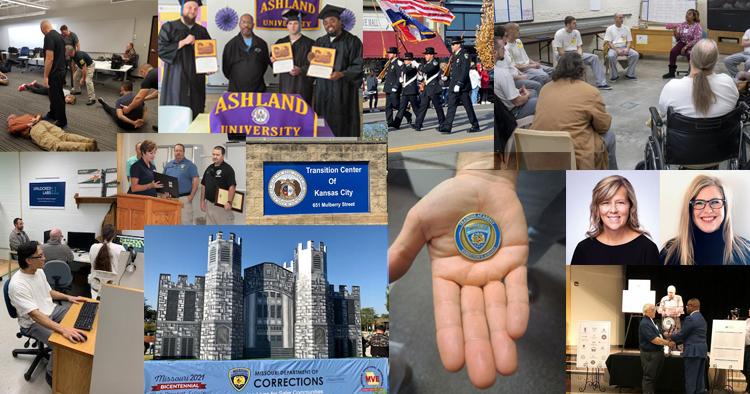
Armed with lessons learned from 2020 and renewed commitment to our mission, in the year 2021, the Missouri Department of Corrections set about making our facilities and our communities better places to live and work. Here are just a few things we accomplished.
-
We fought COVID-19.
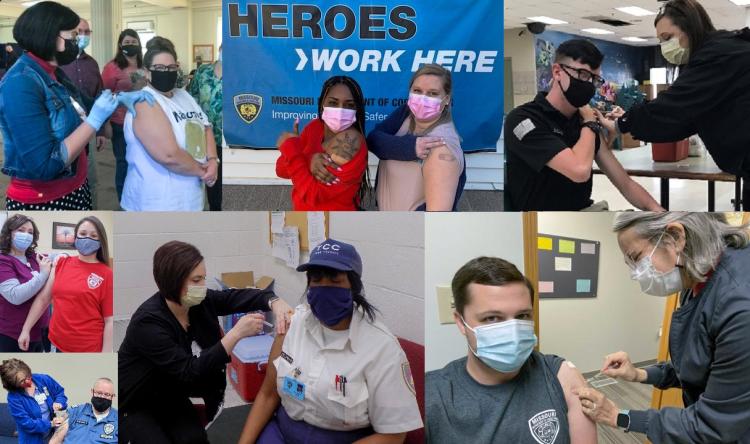
On the heels of a rough 2020, 2021 heralded hope. COVID-19 vaccines, combined with our viral containment strategies, helped us get a handle on the pandemic. In January, corrections staff became eligible for vaccination, followed by Missourians at high risk because of age or medical conditions — including about one-third of the incarcerated population. We held staff vaccination clinics around the state and offender clinics on site, and by late summer, more than 70% of the offender population had been vaccinated. One year into the pandemic, the New York Times ranked Missouri among the nation’s top-performing departments of corrections for COVID management, based on the combination of our high testing rate and low infection rate when compared to the state’s overall population.
-
We honored heroes.
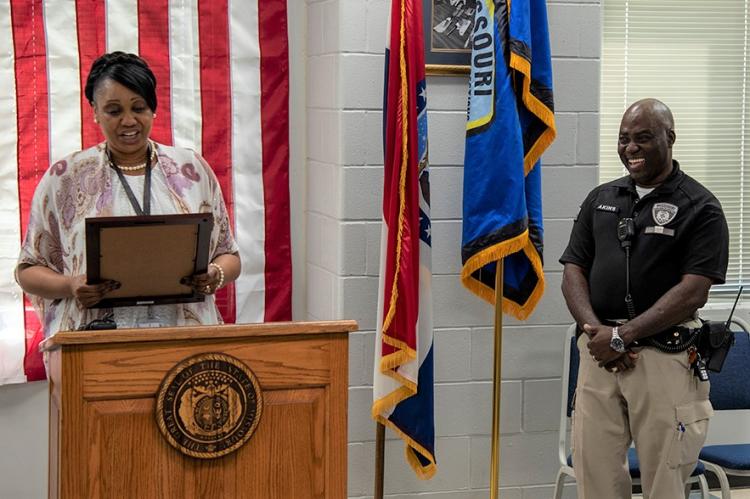
Corrections staff do heroic work every day. To those team members who perform extraordinary acts of bravery, we present the Director’s Award of Valor. Officer Oluropo Akins, for example, was nearby when an offender assaulted Lt. Dustin Layton; he intervened, radioed for help, and gained control of the offender, saving the lieutenant from serious injury. Officer Rodney Buttz was guarding an offender at a hospital when the offender struck Buttz in the head, seized his car keys and fled the room; though seriously injured, Buttz pursued the offender and apprehended him as he attempted to climb into a bathroom ceiling. They join an elite group. Staff presented with the Director's Award of Valor for acts of heroism that occurred in 2021 included David Howe, Timothy Brown and David Montgomery. Staff recognized for heroic acts performed in 2020 included Patricia Gooch, Michael Nease, Matthew Spencer, Terrie Krause, and an impressive group from Moberly Correctional Center: Datota Wheeler, Curtis Moore, Tara Derboven, Wyatt Wilson, Aaron Mozee and Frank Gittemeier.
-
We combated human trafficking.

In spring 2021, two corrections staff members were instrumental in human trafficking takedowns that led to the arrest of three suspects and the rescue of six victims, including an infant and a toddler, in St. Joseph as well the rescue of 11 victims, including two children, in Columbia. As members of the Attorney General’s Office Human Trafficking Task Force, Probation & Parole District 20 Administrator Tena Riley and Missouri Information Analysis Center (MIAC) Investigator Katie Folsom contributed intelligence expertise and performed communications roles in the coordinated statewide multi-agency efforts to identify and stop human trafficking.
-
We showed off our honor guard.
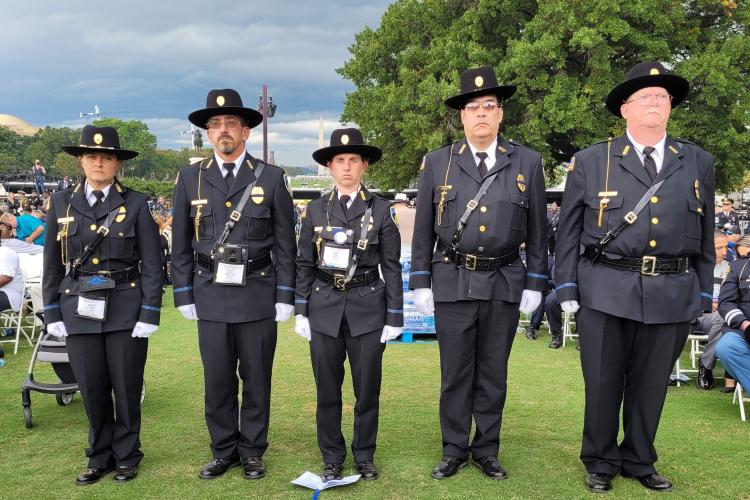
2021 was a big year for the Missouri Department of Corrections Honor Guard. Clad in the sharp new uniforms we rolled out in January, the guard represented the department and the state at events nationwide. A highlight was the 40th Annual National Peace Officers’ Memorial Service on the lawn of the U.S. Capitol in Washington, D.C., where the corrections team paid tribute to fallen officer Richard Wright. Other events included the Correctional Peace Officers Foundation (CPOF) annual conference, the Governor’s Inaugural Bicentennial Parade, and local holiday parades in communities such as Chillicothe and Bonne Terre.
-
We got better pay for our team.

Following the biggest pay increase in the department’s history — a department-wide 3-13% raise that went into effect in January 2020 — we worked with the Governor’s Office and the Missouri General Assembly to secure a July 1, 2021, pay increase of 5.8%-15% for corrections staff in hard-to-fill positions: correctional officers, sergeants, lieutenants and food service workers. A 2% raise for all other staff starts Jan. 1, 2022, and the Governor has recommended an additional 5.5% raise for all state workers that, if approved, would start Feb. 1, 2022. If passed, it will mean a correctional officer starting salary increase of 30% in the last five years.
-
We wooed new staff.
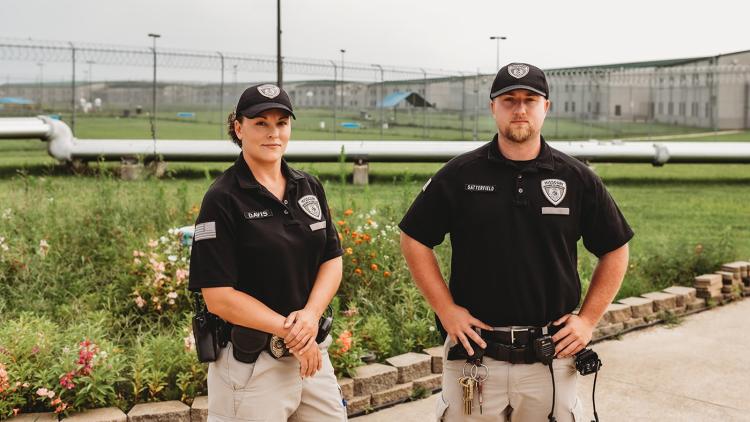
Staffing shortages are a perennial challenge for departments of corrections throughout the United States, and the pandemic exacerbated the situation. Fortunately, the tide began to turn in 2021, with the department starting to gain more staff, thanks to pay raises and a boost in hiring efforts. We hired recruiters, held hiring events, launched ad campaigns, visited career fairs, set up a job booth at the Missouri State Fair, and got to work on new onboarding processes as well as a web-based guide to support them. A referral incentive program rewarded current staff with up to $1,000 for each successful referral of a new correctional officer, food service worker or teacher.
-
We made our facilities safer.
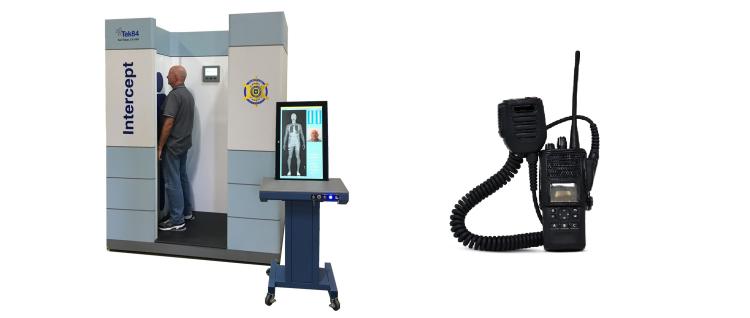
Corrections can be a risky business, and we want all team members to feel safe when they come to work. In 2021, we improved safety at worksites throughout the state with new safety plans and equipment. We acquired new radios to ensure more reliable staff communication and quicker response times. We also installed body scanners at multiple sites, helping to mitigate the introduction of dangerous contraband into our facilities while also providing staff with a less invasive tool to use when conducting searches. Look for even more safety upgrades in 2022.
-
We prioritized wellness.
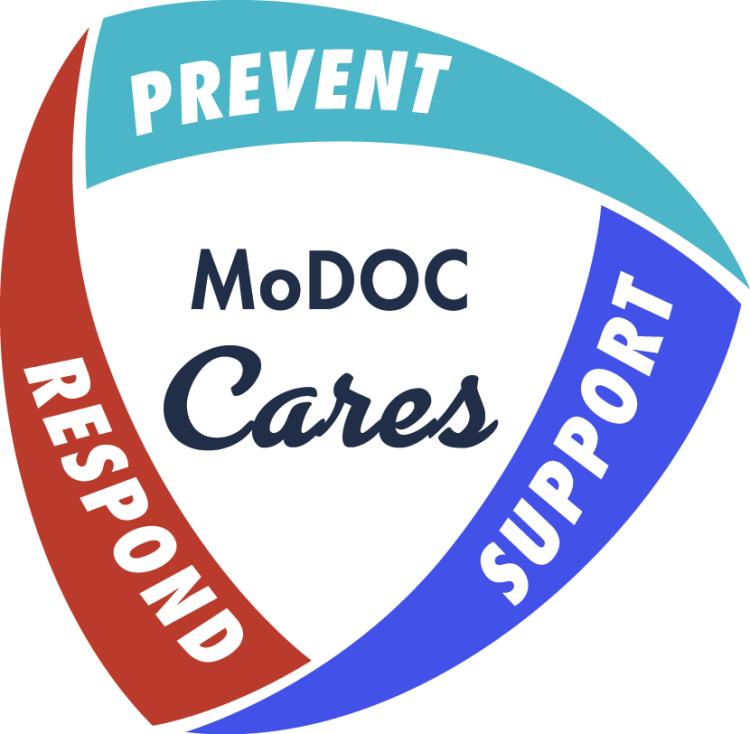
To better support our team, the department has refocused the Employee Health and Safety Unit with renewed attention to promoting wellness and managing mental health and workplace stress. The unit has launched a three-part wellness model that aims to prevent problems through holistic wellness resources, services, programs and trainings designed to provide care and build resiliency in staff; to respond to situations by offering resources and strategies designed to assist staff with unique occupational stressors; and to support staff by building a culture that enhances their overall health and benefits their lives.
-
We transformed training and development.
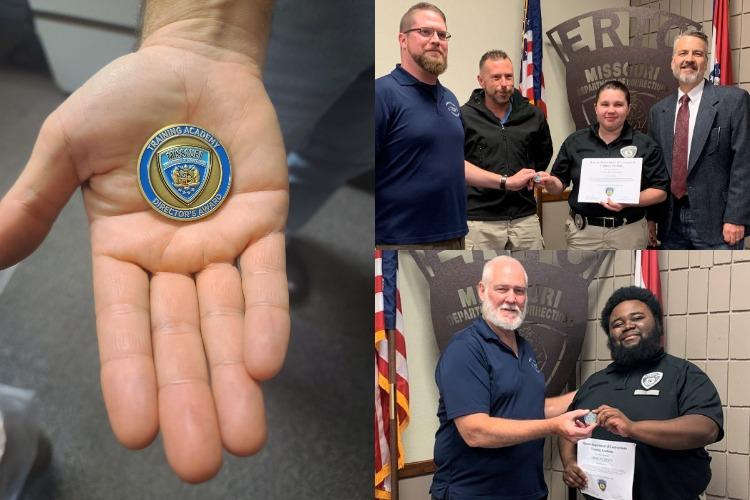
The evolution of staff training and development gained momentum in 2021, with a blended learning environment for staff basic training that combines online components with in-person courses. We launched a partnership with State Technical College of Missouri to give our staff free maintenance technician training in a program worth an estimated $12,000-$15,000 that grants up to 10 industry-recognized apprenticeship credentials. We recognized the top students in each training class with the new Staff Training & Development Coin of Excellence. We planned a soon-to-be-launched learning management system that will streamline and simplify how we complete and track staff training courses. We also set the stage for a new hands-on training academy location inside Crossroads Correctional Center.
-
We took our show on the road.

Division of Human Services (DHS) leaders visited every institution and met with administration teams and section heads to discuss both new and existing support offered by DHS. The Employee Health and Safety team introduced the newly developed wellness and trauma support resources for staff. The construction unit talked about their ongoing assistance in capital improvements, small projects completed with their crews, and improvements in energy management. DHS collaborated with facility staff on recruiting efforts. Attendees also learned about the behind-the-scenes efforts to transform the training academy and expand The Corrections Way.
-
We welcomed back visitors and volunteers.
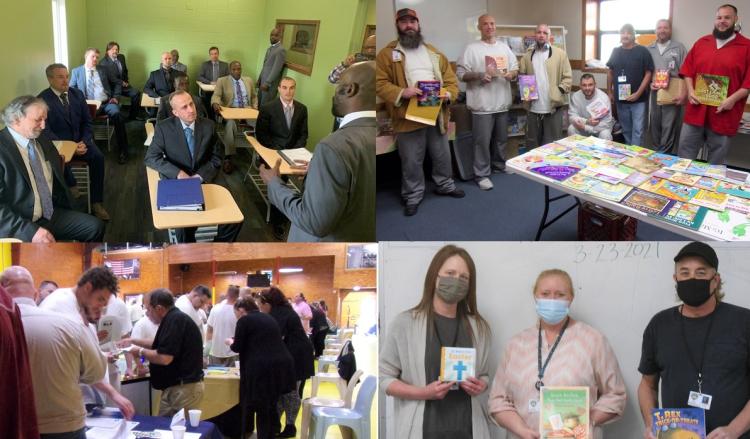
With widespread COVID vaccination underway, the Division of Adult Institutions re-opened visiting in state prisons to reunite incarcerated Missourians with their loved ones, starting June 1 with offenders who were fully vaccinated and expanding Oct. 1 to all offenders. After a long absence, volunteers also returned to our facilities and worked their magic, taking part in resource fairs, religious services and education. In some cases, they expanded participation in programs, such as the Urban League Save Our Sons program, which helps men build life skills and job skills, and the Read With Me program, in which incarcerated dads record themselves reading to their children and volunteers mail a book and recording to each child.
-
We expanded treatment and celebrated client success (with the Governor).
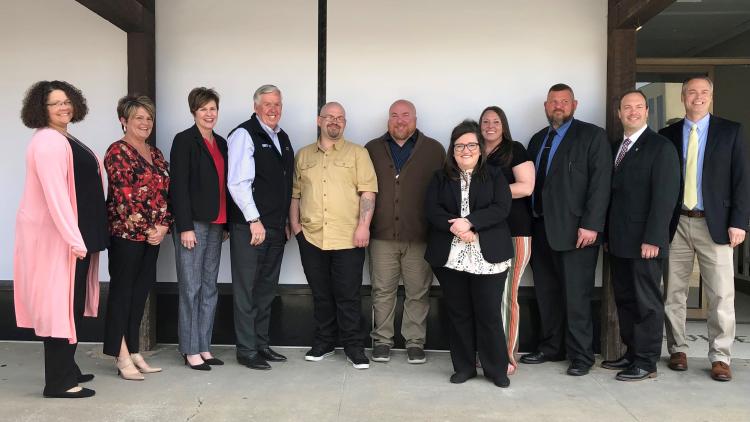
We made even more gains in Improving Community Treatment Success (ICTS), a collaborative cross-departmental program providing community-based treatment and wrap-around services to high-risk probation and parole clients who have substance use and other behavioral health challenges. Since its 2018 launch, ICTS has served more than 1,300 people on probation or parole in 12 Missouri counties, helping to reduce crime and recidivism. In 2021, Governor Parson sat down with former probationer and fellow Bolivar resident George Lanier to talk about how his ICTS team of P&P staff and treatment providers helped him get back on track in time to welcome his new baby. We also won a Smart Probation grant, which aims to improve community treatment collaboration and provide stronger clinical oversight for people on probation or parole who have behavioral health concerns.
-
We converted a prison into a classroom-filled transition center.
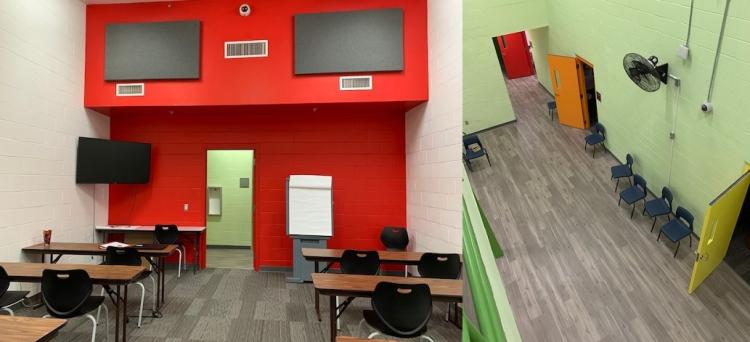
In 2021, we converted he Kansas City Reentry Center, a minimum-security prison, into the Transition Center of Kansas City (TCKC), a residential facility for men on probation or parole in the Kansas City area. Following the model established in the Transition Center of St. Louis, in a four-phase program, the men living at the facility will work on employment readiness, treatment, education, life skills, family reunification, parenting, money management and other areas to help improve their chances of success. At some phases, they can leave the facility for periods of time to interview for jobs, connect with family, attend church services, and more. TCKC is expected to open to residents in spring 2022.
-
We empowered probation and parole officers.
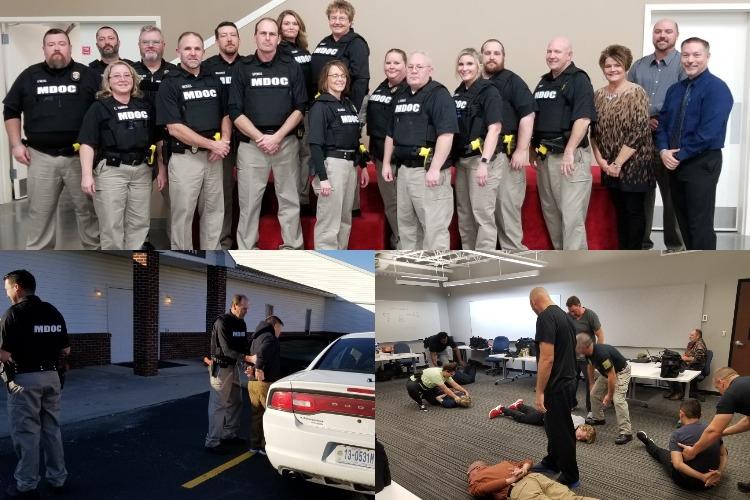
The Division of Probation & Parole (P&P) had its hands full in 2020, finding innovative ways to continue close supervision of their clients while juggling pandemic-related challenges. With these new policies and procedures in place, in 2021 P&P got to work on finding safer and more efficient ways to apprehend clients in violation of their terms of supervision. In the Arrest Team pilot program, officers started classes with University of Central Missouri Police Academy trainers, building skills in escort techniques, handcuffing, transportation and more. The program empowers officers to more comprehensively manage their own clients while alleviating the strain on local law enforcement agencies.
-
We focused on the whole person.
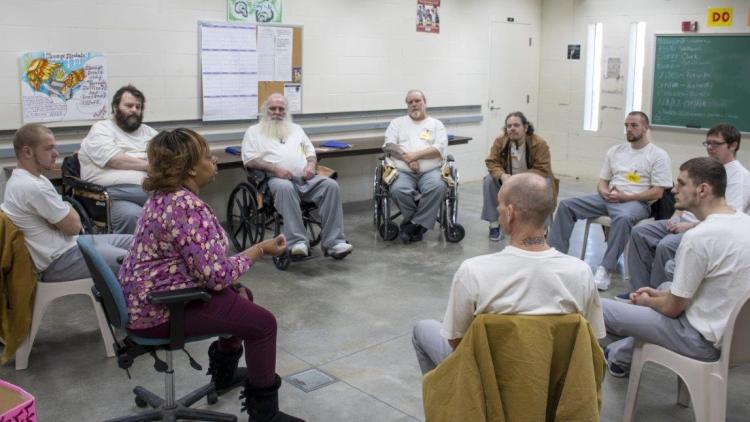
Substance use, mental health issues, or both affect many offenders in our prisons. The department took steps to better address the whole person through a behavioral health focus. We started by combining our substance use and mental health sections into a single Behavioral Health Services unit. New positions in the recently awarded mental health and substance use contracts also foster collaboration between the two disciplines, with institutional treatment professionals and qualified addictions specialists adding behavioral health services to every institution. Finally, existing programming and treatment models were redesigned to offer evidence-based, individualized treatment to support recovery and success at reentry.
-
We opened up our classrooms.
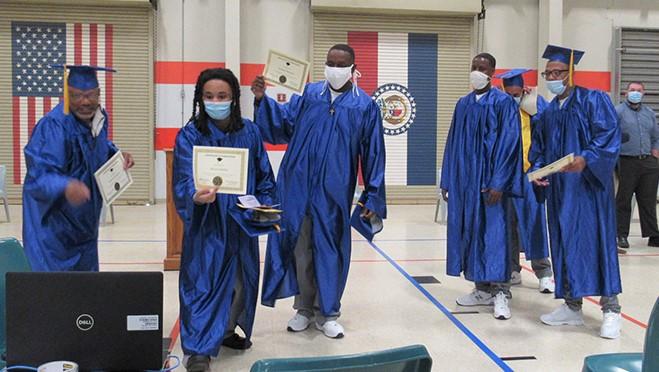
With outside access to prisons still restricted at spring graduation time, our education teams found ways to livestream some ceremonies so families could celebrate the 141 graduating students, who completed courses and the High School Equivalency Test (HiSET) with a 99.2% success rate. In 2021, more than 4,600 incarcerated Missourians took part in education programs, including adult basic education, career and technical programs, and post-secondary education. At five facilities, 48 offender-students graduated from Ashland University's Correctional Education Program, earning 44 associate's degrees and four bachelor's degrees.
-
We warmed hearts with our quilts.
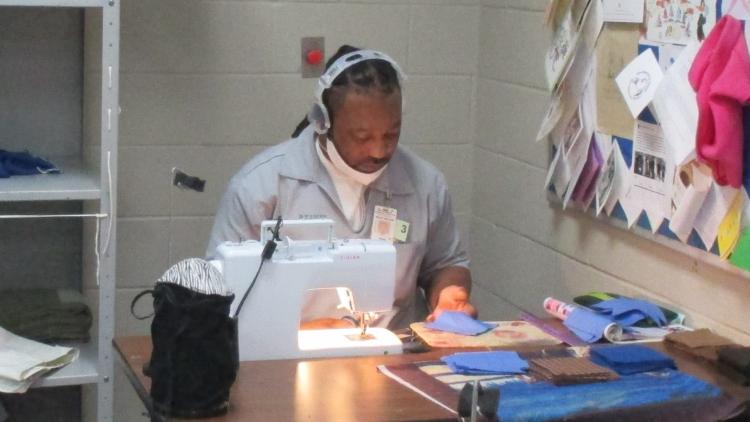
The quilting program at South Central Correctional Center gained national media attention in summer 2021 as offenders in the SCCC Restorative Justice program worked to create a personalized quilt for every foster child in Texas County. The program was featured on St. Louis Public Radio, the Washington Post, local news outlets and multiple podcasts. As a result, Restorative Justice received nearly $30,000 in donated funds, materials and supplies for use by MODOC quilters statewide. Jefferson City Correctional Center (JCCC) is the department’s most prolific producer of quilts, churning out nearly 900 of them in 2021. Restorative Justice quilting programs statewide made cozy quilts for Rainbow House, weighted quilts and vests for elementary schools, blankets for babies, and even a commemorative quilt for National Crime Victims Rights Week.
-
We readied our state’s next workforce for in-demand careers.
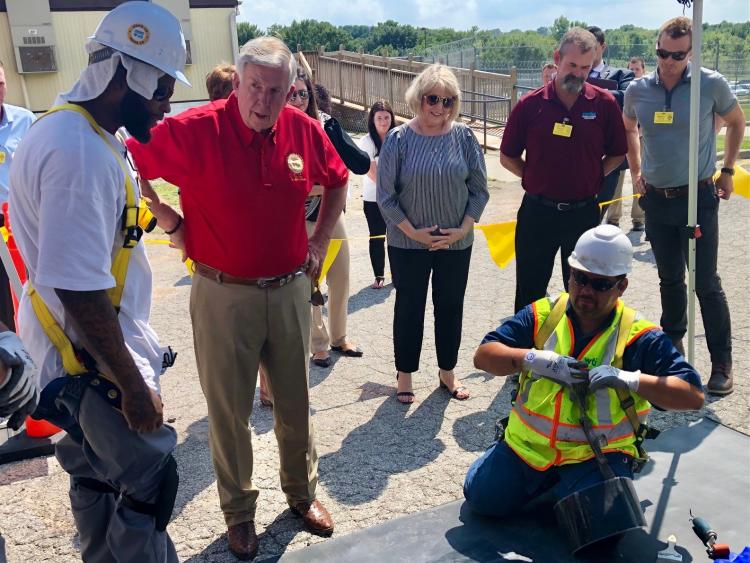
2021 brought new workforce-development programs for offenders nearing release from prison. On the western side of the state, our reentry unit, St. Joseph staff and Tremco Roofing & Building Maintenance / Weatherproofing Technologies Inc. (WTI) teamed up to train incarcerated Missourians in roofing and waterproofing for post-release jobs in the construction industry; workforce-development champion Governor Mike Parson visited Western Reception, Diagnostic & Correctional Center to see the program in action. In the eastern region, Potosi Correctional Center became home to a LaunchCode program, in which offender-students learn coding skills to help them land jobs in the tech industry after release; the program is the subject of a documentary film now in production.
-
We celebrated Missouri’s 200th birthday.
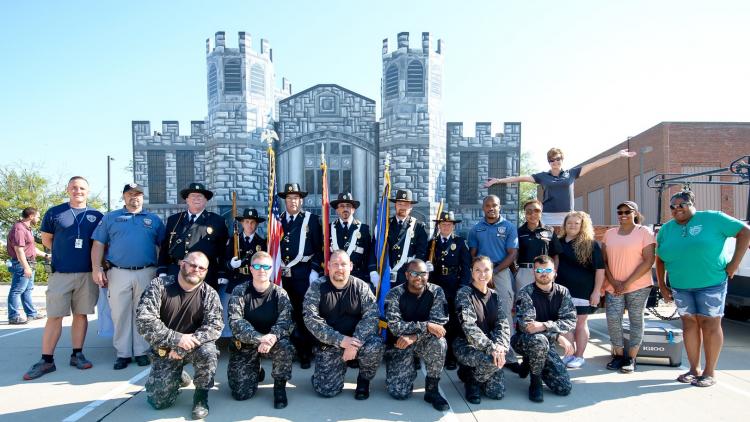
2021 marked our great state’s bicentennial, and MODOC did our part to make the celebration special. In September, staff and offenders came together to represent the department in the Governor's Bicentennial Inaugural Parade in Jefferson City. Jefferson City Correctional (JCCC) staff oversaw the construction of the department's float, a 14-foot replica of the Missouri State Penitentiary (MSP) built by Missouri Vocational Enterprises (MVE) workers and hand-painted by JCCC artists. While the float represented the history of corrections and celebrated a historic landmark, its construction highlighted the evolution of corrections in Missouri, showcasing skills built through job training and education programs — and the hard work of the staff who changes lives. Honor Guard members from (JCCC) and Corrections Emergency Response Team (CERT) members from Algoa Correctional Center (ACC) marched with the float. Our efforts earned the Governor’s Choice Award for best parade entry. At the end of the year, the Culinary Arts Program at Algoa Correctional Center commemorated the bicentennial with an ornate gingerbread replica of the Missouri State Capitol.
-
We welcomed a new health care provider.

In 2021, the company Centurion became the contracted health care service provider for Missouri state prisons, providing medical and mental health treatment to more than 23,000 incarcerated Missourians throughout the state and operating medical units 24 hours a day. About 70% of Missourians in our facilities live with chronic medical conditions, and about 20% have been diagnosed with a mental health condition requiring clinical care and/or medication.
-
We made spiritual connections.
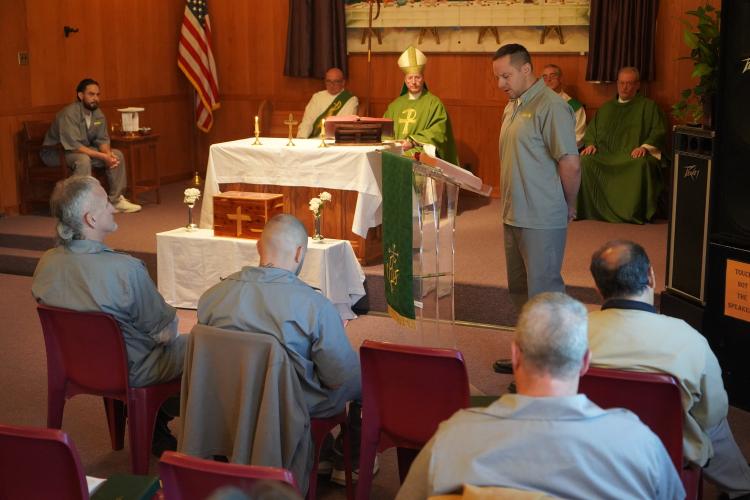
In 2021 we earned the Department of Corrections Excellence in Moral Rehabilitation Award from the Prison Seminaries Foundation. In part, the award recognized our Freedom on the Inside prison seminary program, wherein offender-students at Jefferson City Correctional Center earn bachelor’s degrees in Christian studies through Hannibal Lagrange University in preparation to become peer ministers. In 2021, we also welcomed faith-based program volunteers and religious leaders back into our facilities. Two bishops performed Catholic masses in prison chapels, with Bishop W. Shawn McKnight visiting Jefferson City Correctional Center and Algoa Correctional Center, while Bishop Mark S. Rivituso visited Missouri Eastern Correctional Center. Meanwhile, Chaplain Matt Mason talked to a Kansas City audience about the challenges and reward of working as a prison chaplain.
